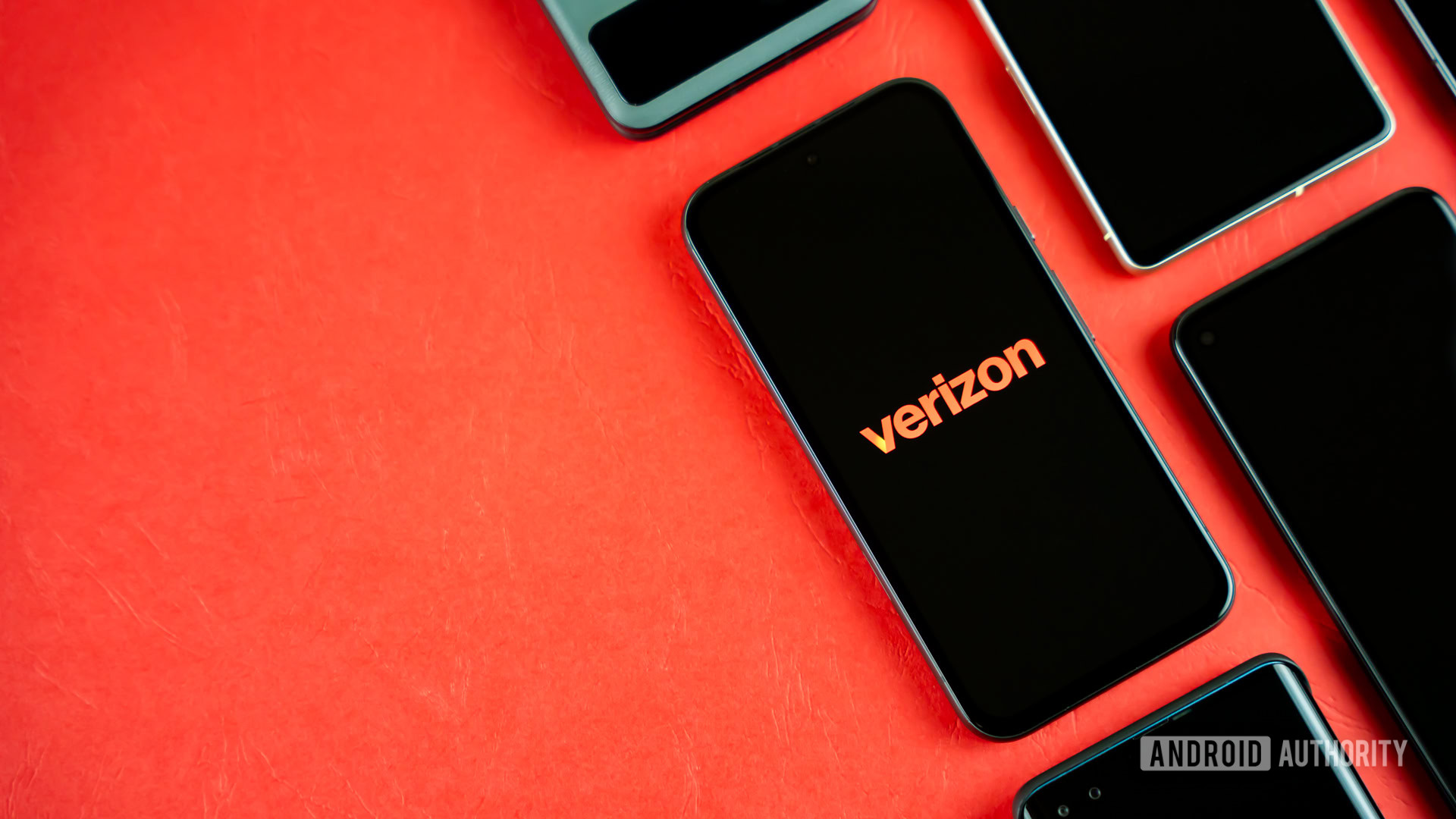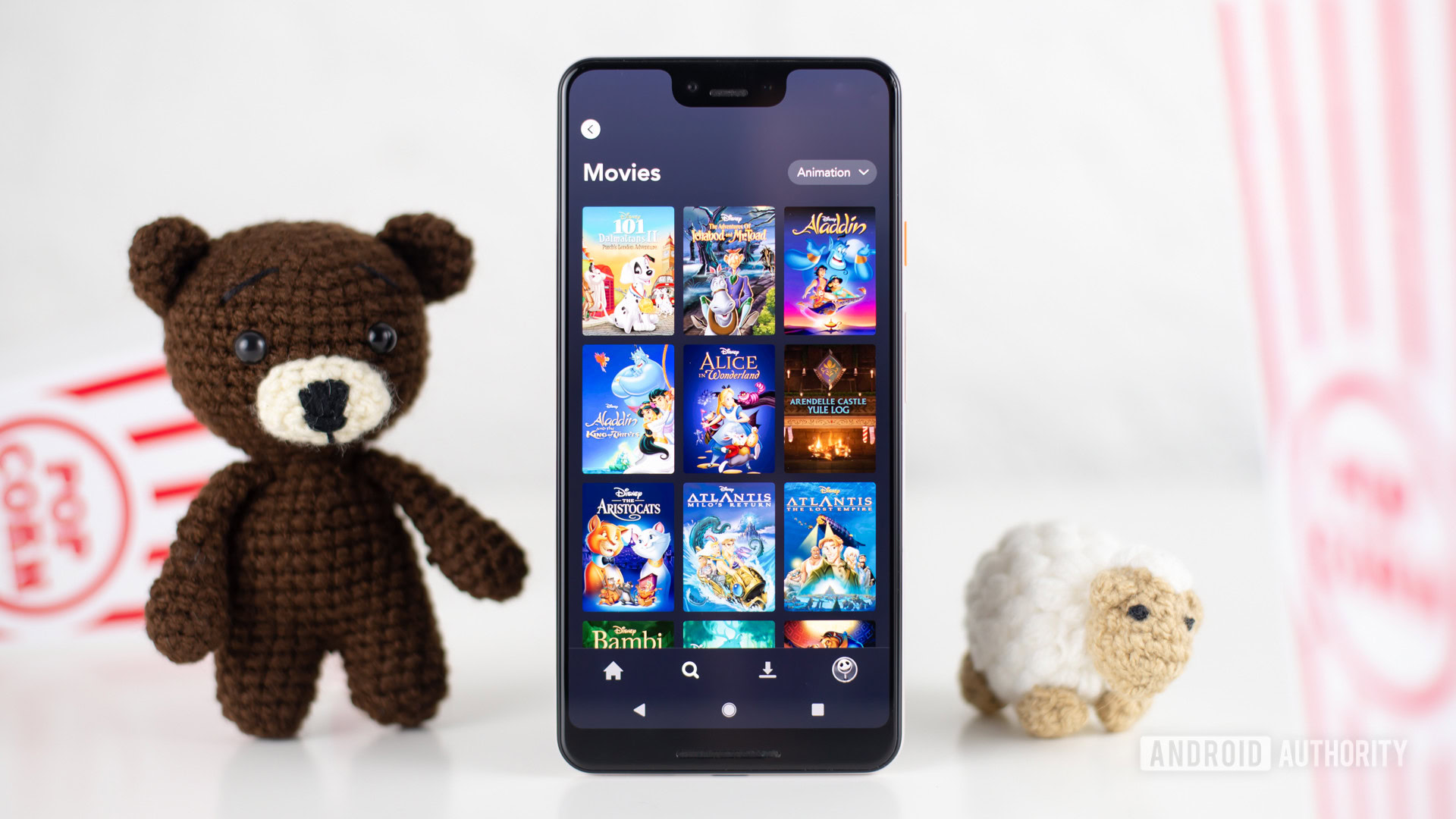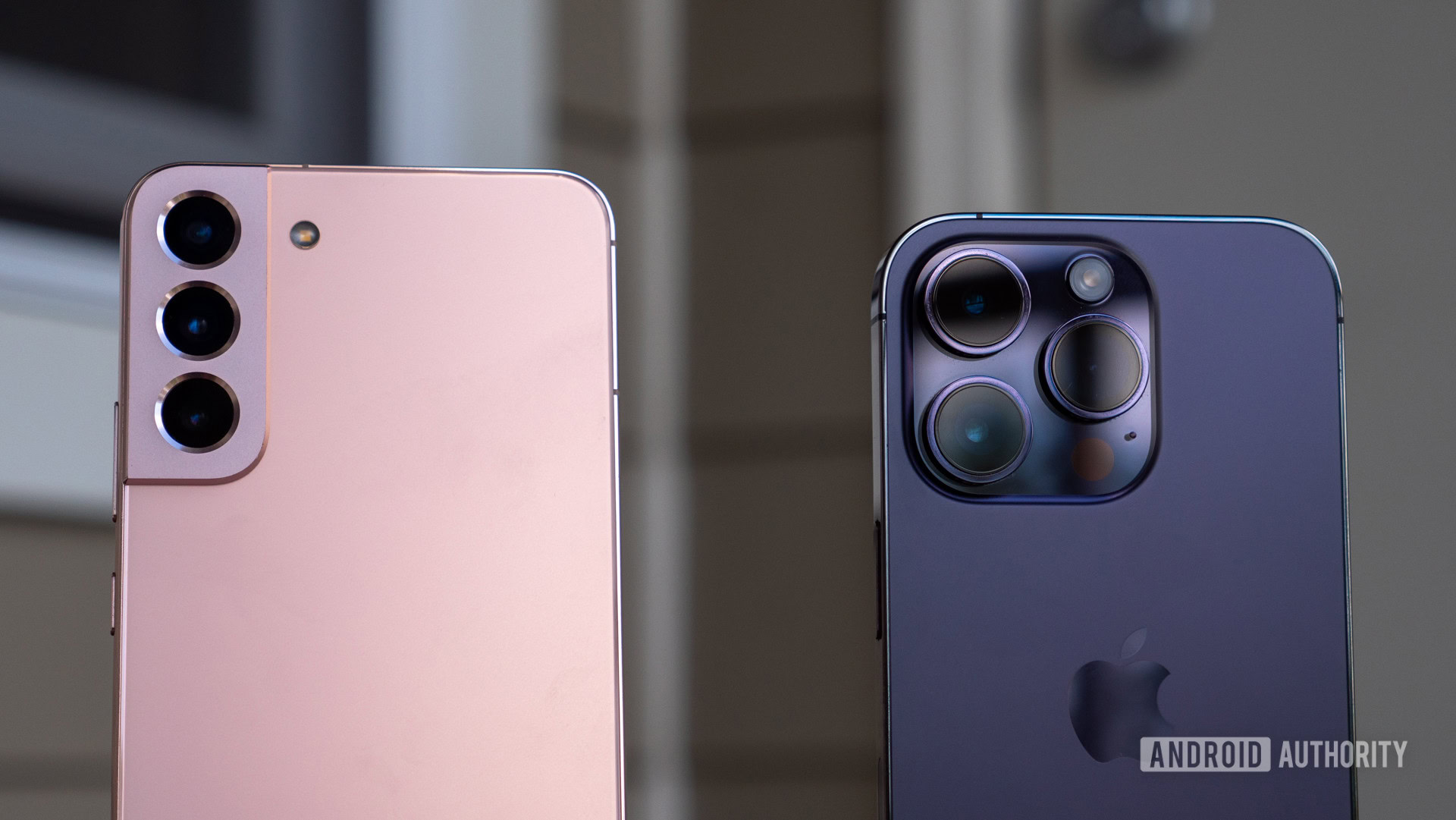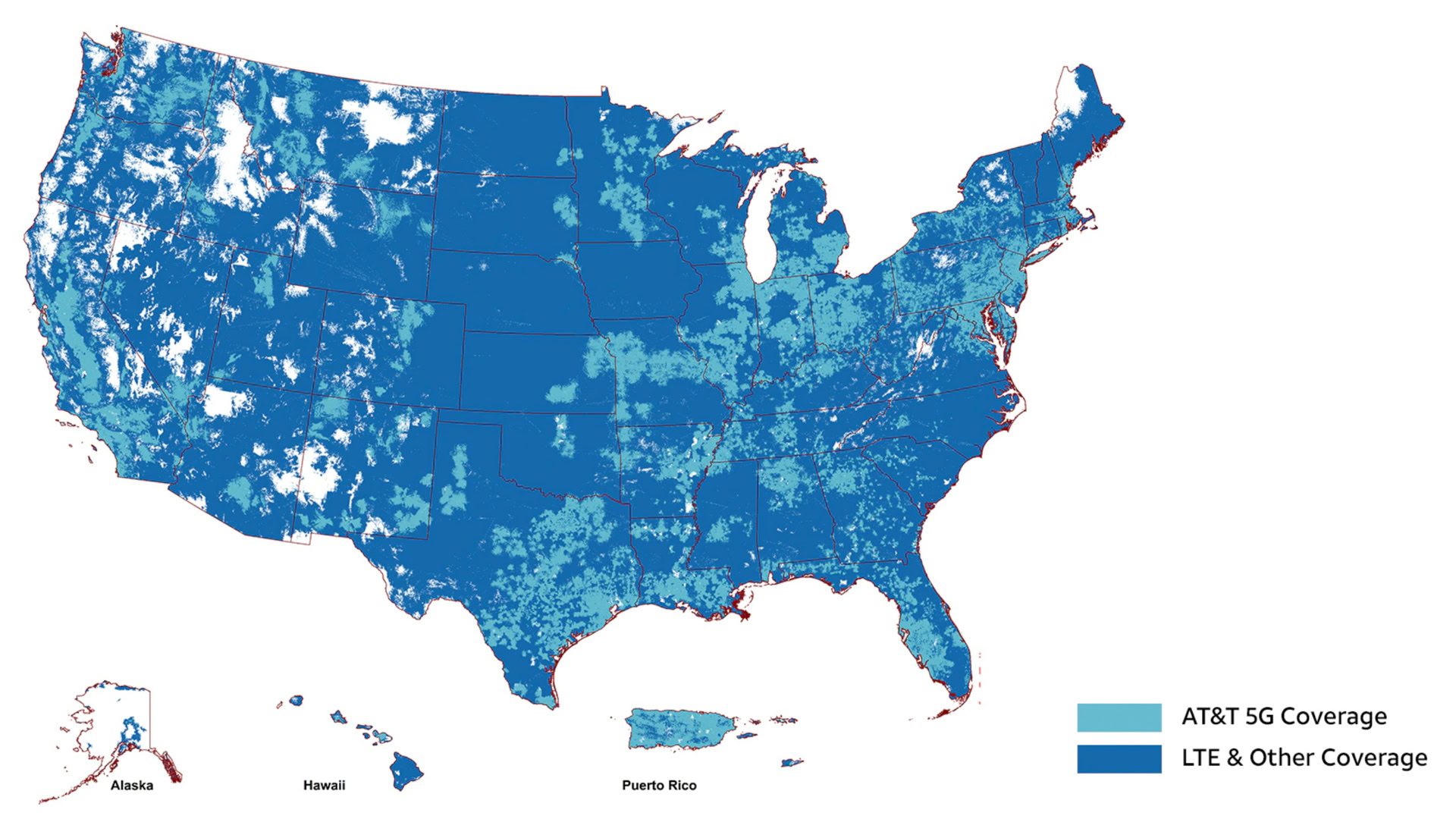Affiliate links on Android Authority may earn us a commission. Learn more.
AT&T vs Verizon: Big Red takes the lead, but which is right for you?
April 10, 2025

These days there are really only three major postpaid carriers, Verizon, AT&T, and T-Mobile. In this guide, we take a closer look at two of them: Big Blue vs Big Red. You may be struggling to choose one over the other, so we’re going to pit AT&T against Verizon to help you out.
It’s not enough to look at plans, prices, or simply a selection of phones. We’re going to go category by category and get to the heart of each carrier. Let’s start by taking a look at a quick table that breaks down their key specs:
| Unlimited Starter SL | Unlimited Extra EL | Unlimited Premium PL | myPlan Unlimited Welcome | myPlan Unlimited Plus | myPlan Unlimited Ultimate | |
|---|---|---|---|---|---|---|
Cost | Unlimited Starter SL $65.99 for one line $60.99 for two lines $45.99 for three lines $35.99 for four lines $30.99 for five lines | Unlimited Extra EL $75.99 for one line $65.99 for two lines $50.99 for three lines $40.99 for four lines $35.99 four five lines | Unlimited Premium PL $85.99 for one line $75.99 for two lines $60.99 for three lines $50.99 for four lines $45.99 for five lines | myPlan Unlimited Welcome $65 per line for one $55 per line for two $40 per line for three $30 per line for four $27 per line for five+ | myPlan Unlimited Plus $80 per line for one $70 per line for two $55 per line for three $45 per line for four $42 per line for five+ | myPlan Unlimited Ultimate $90 per line for one $80 per line for two $65 per line for three $55 per line for four $52 per line for five+ |
Talk & Text | Unlimited Starter SL Unlimited | Unlimited Extra EL Unlimited | Unlimited Premium PL Unlimited | myPlan Unlimited Welcome Unlimited | myPlan Unlimited Plus Unlimited | myPlan Unlimited Ultimate Unlimited |
Data | Unlimited Starter SL Unlimited basic 4G LTE 5G access with compatible device | Unlimited Extra EL 50GB premium 4G LTE Unlimited basic 4G LTE 5G access with compatible device | Unlimited Premium PL 100GB premium 4G LTE Unlimited basic 4G LTE 5G access with compatible device | myPlan Unlimited Welcome Unlimited 4G LTE 5G Nationwide | myPlan Unlimited Plus Unlimited 4G LTE 5G Nationwide Wideband 5G | myPlan Unlimited Ultimate Unlimited 4G LTE 5G Nationwide 5G wideband |
Hotspot | Unlimited Starter SL Not included | Unlimited Extra EL 15GB per line | Unlimited Premium PL 30GB per line | myPlan Unlimited Welcome None ($10 add on exists, however) | myPlan Unlimited Plus 30GB 4G LTE or 5G | myPlan Unlimited Ultimate 60GB 4G LTE or 5G |
International Service | Unlimited Starter SL Unlimited texting to 120 countries | Unlimited Extra EL Unlimited texting to 120 countries | Unlimited Premium PL Unlimited texting to 120 countries | myPlan Unlimited Welcome Talk & Text in Mexico and Canada Texting in over 200 countries | myPlan Unlimited Plus Talk & Text in Mexico and Canada Texting in over 200 countries | myPlan Unlimited Ultimate Talk & Text in Mexico and Canada Texting in over 200 countries |
Extra Perks | Unlimited Starter SL Device security and spam risk alerts Standard definition streaming | Unlimited Extra EL Device security and spam risk alerts Standard definition streaming | Unlimited Premium PL Device security and spam risk alerts High definition streaming | myPlan Unlimited Welcome 480p streaming Can add perks for $10 each, including 100GB hotspot data, Apple Music, Apple One, Disney Plus bundle, and more | myPlan Unlimited Plus 480p streaming Can add perks for $10 each, including 100GB hotspot data, Apple Music, Apple One, Disney Plus bundle, and more | myPlan Unlimited Ultimate 10GB high-speed international data 480p streaming Can add perks for $10 each, including 100GB hotspot data, Apple Music, Apple One, Disney Plus bundle, and more |
Already made up your mind just by taking a quick glance? Hit the buttons below to sign up!
AT&T vs Verizon — Pricing and Value

- Winner: Verizon
Historically Verizon has been the most expensive carrier, but that’s less true anymore. In fact, AT&T is marginally more expensive these days with its Start plan starting at $65.99 vs Welcome’s starting price of $65. You’ll find an even bigger gap between Unlimited Extra and myPlan Unlimited Plus, with the latter priced at $10 less. Lastly, we have AT&T’s Unlimited Premium vs myPlan Unlimited Ultimate, with the former also priced $10 higher than Verizon’s offering.
Let’s break down what you actually get and see how it compares:
- AT&T Unlimited Starter vs Verizon myPlan Unlimited Welcome: Both offer LTE and 5G access without a hotspot option. You also get similar international perks. Verizon also allows you to add a few extra perks for $10 each, which we’ll talk about a bit more later.
- AT&T Unlimited Extra vs Verizon myPlan Unlimited Plus: Again we have the same LTE/5G access but the Verizon option gives you double the hotspot access at 30GB. Again it also has the ability to add perks for $10 a piece.
- AT&T Unlimited Premium vs Verizon myPlan Unlimited Ultimate: Comparing the big boys we once again see a lot of the same trends. Verizon once again doubles data over AT&T offering a whopping 60GB of hotspot access. There’s the same $10-each perks. But this time Verizon also is giving you 10GB of high-speed international data, something AT&T just can’t match.
At the end of the day, it’s clear who is the better value and price here and, surprisingly, it’s Verizon. AT&T has really fallen behind the other major carriers recently and for the first time in a while, we find ourselves praising Big Red.
AT&T vs Verizon — Coverage and speed
- Winner: Tie
Both carriers can claim to have the most extensive coverage area in the United States — but it depends on what network you’re looking for. AT&T boasted the largest 3G network, though it’s been retired in favor of wide-reaching 4G LTE coverage. Verizon, on the other hand, has had a lead in 4G LTE for a number of years. Both are still important for customers who live outside of major cities, though there are now faster options for some users.
If you turn your attention to each carrier’s 5G access, you’ll find that speed and availability are once again the name of the game. Verizon employs a high-speed mmWave network for its high-end 5G coverage, which is lightning-fast but offers a limited range. Big Red now has a more accessible Nationwide 5G network to fill in the gaps, too. AT&T, on the other hand, relies mainly on a low-band network that stretches across far more of the country, even if it doesn’t reach the same speeds.
You have a look at AT&T’s coverage map above and immediately see where its 4G LTE and 5G access are available, but it’s a bit trickier with Verizon. You’ll have to get up close and personal with street-by-street maps if you want the fastest mmWave coverage. However, you can see Verizon’s new Nationwide 5G network right here.
Depending on where you live, AT&T might be a better fit. It’s also typically less congested in most states and more consistent. That said for the majority of users Verizon is going to be the better option when it comes to speed and coverage. Part of me thinks I should give the win to Verizon but I’ll be diplomatic here and call it a tie.
AT&T vs Verizon — Perks and promotions

- Winner: Verizon
Neither AT&T nor Verizon offer any major perks by default, though AT&T’s Premium tier does give you HD streaming versus the 480p that Verizon defaults to for most of its plans. However, Verizon does allow you to upgrade to HD for an additional $5 a month.
While Verizon doesn’t include perks, it does offer them for just $10 each. The total list of optional Verizon are:
- Disney Bundle (Hulu, Disney Plus, ESPN Plus)
- 2TB Cloud Storage
- 100GB Mobile hotspot
- Walmart+ Membership
- Apple One
- Apple Music Family
- Smartwatch Data
- 3 TravelPass Days
AT&T doesn’t have any perks at all, optional or otherwise. It used to offer HBO Max but that’s no longer the case. Verizon’s highest tier Ultimate plan also offers one of the best international perks of any major carrier with Google Fi Wireless the only carrier that upstages it.
Both carriers offer a pretty solid selection of promos, though you’ll mainly be saving on new devices rather than plans. For more on deals, check out each carrier’s respective websites for the best Verizon deals and best AT&T deals.
At the end of the day Verizon offers more. Heck, you can add a perk to its Plus and Ultimate plans and still end up paying the same as AT&T’s perkless alternatives.
AT&T vs Verizon — Phone selection

- Winner: Tie
Carrier-exclusive phones aren’t what they once were. Many of the leading US carriers offer nearly identical lists of devices, and sometimes the only difference is whether the phone relies on GSM or CDMA. AT&T and Verizon are no exceptions to this rule, but Big Red exclusively offers a good variety of Motorola phones, like the upcoming new Razr series.
As we mentioned before, the GSM and CDMA divide is one of the main differences between AT&T and Verizon. Big Red falls on the CDMA side, though really that’s not as true anymore with the emergence of modern standard like 5G. Meanwhile, AT&T holds down the GSM camp. GSM is the newer technology, and it’s more common than CDMA, which can be great if you travel abroad often.
You can see Verizon’s full list of phones on their website, and the same goes for AT&T.
AT&T vs Verizon: Any alternatives?
While the battle of AT&T vs AT&T continues to wage on, should you consider any alternatives? T-Mobile is probably the most obvious choice. Check out our guides comparing AT&T vs T-Mobile and Verizon vs T-Mobile for a better idea of how T-Mobile compares. The Dish Network-owned Boost Mobile is another postpaid (and prepaid) option that utilizes a combination of AT&T, T-Mobile, and its own emerging 5G network to blanket its consumers in coverage. Infinite also offers really good free phone promotions for those who are willing to commit to a short contract period.
Of course, there are also a lot of prepaid carriers, many of which are T-Mobile or Verizon MVNOs. There’s also the option of getting prepaid service directly from Verizon or AT&T. These plans won’t get the same level of priority as postpaid, but will typically see priority above many other prepaid carriers. With all that said, here are our top three prepaid recommendations:
- Mint Mobile: You can save a lot of money with Mint Mobile while still enjoying the T-Mobile network. There are even family plans and more. Be aware the best pricing requires you to pay for a year of service upfront, though there are other payment options available.
- Visible: This carrier is owned directly by Verizon and runs on its network. While it offers two plans, we recommend Plus as you basically get the same speeds and reliability of a postpaid Verizon experience but for much cheaper than you’d pay directly.
- US Mobile: Not only does this carrier have great customer service and support for all three networks, but it’s one of the few major prepaid options that isn’t directly run by one of the major networks. This makes a great choice if you want to support the (comparatively) little guys.
Verizon Prepaid vs AT&T Prepaid
When it comes to Verizon Prepaid vs AT&T Prepaid, both offer several choices. Starting with Verizon Prepaid, you can pick a 15GB plan starting at $35 a month or can go with Unlimited or Unlimited Plus for $50 and $60, respectively. There are also multi-line discounts for the two unlimited plans which brings down costs to as low as $34 a month per line for five lines of Unlimited or $44 a month per line for five lines.
In comparison, AT&T Prepaid offers a 5GB plan for just $30 a month, or 15GB for $40 a month. Honestly, Unlimited is a better deal here at $40 a month. There’s also an option that adds 5GB of hotspot data for just $10 more. There’s also an Unlimited MAX tier that includes 25GB of hotspot data, HD streaming, and 100GB of cloud storage.
AT&T vs Verizon: Which should you choose?
- Overall Winner: Verizon
In the battle of AT&T vs Verizon, it’s pretty obvious that Big Red has leaped ahead of its once very close rival. Verizon is either better or tied in almost every category that matters. That said, just because it offers a better value doesn’t mean it’s the better choice for you. AT&T has stronger coverage in certain areas as well as a wider 5G network. If you’re someone who finds themselves deep in AT&T country, Verizon’s advantages will mean nill.
Ultimately, we can’t tell you which network to pick — and maybe neither one is the right option. That’s why it’s important to shop around to find the best possible match.
